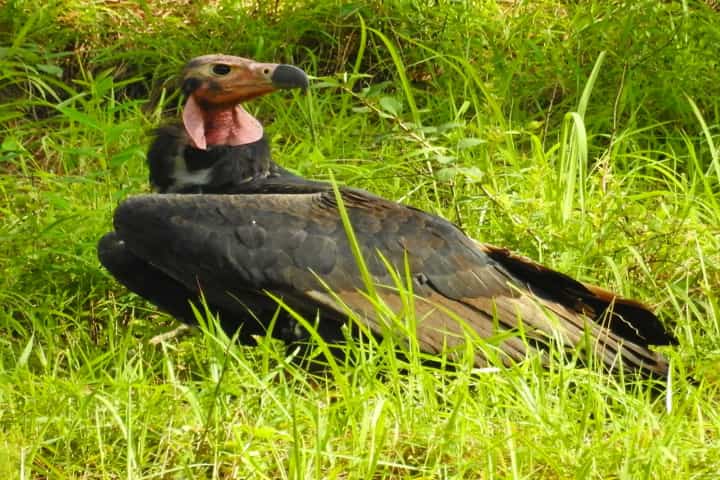Joining hands for conserving vultures, three southern States, namely Tamil Nadu, Kerala and Karnataka will be conducting the first-ever synchronised census of these birds. This exercise will take place on February 25 and 26.
Till now forest officials and environmentalists have had a rough estimate of vultures in the South. Tamil Nadu, which had the highest number of vultures in the past, is now witnessing a rapid decline.
Talking about this mammoth exercise, Srinivas R. Reddy, Chief Wildlife Warden, Tamil Nadu said it will done in Mudumalai, Sathyamangalam and Nilgiris forest division in Tamil Nadu, in Wayanad in Kerala and in Nagarhole, Bandipur and some areas of MM Hills in Karnataka.
Southern India boasts of four types of vultures, with the majority of them found in the Nilgiris Biosphere Region. These are White-Rumped vulture, Long Billed Vulture, Red Headed Vulture and Egyptian Vulture.
During a recent State-level Vulture Conservation Committee meeting, a report by a team led by B. Ramakrishnan from Wildlife Biology Department, Government Art College, Udhagamandalam stated that there are only 150-odd vultures left in the wild in Tamil Nadu. Of these the White-Rumped Vulture are 122 while the other three species are in single or double digits.
Contamination of food eaten by vultures, namely cattle and animal carcasses, with drugs like diclofenac – now banned – is one of the main reasons for their decline in the country. As per experts, apart from this, other veterinary drugs, unavailability of carcass and degradation of habitat are additional causes for their decrease.
After the census a slew of management interventions are planned by the authorities. Among them are making farmers and cattle owners avoid banned drugs to treat animals; ensure contaminated carcass is not accessible to vultures; establishing a safe zone for vultures; and establish rescue and captive breeding centres for these birds.
Also read: Conservationist S. Bharathidasan takes lead to save endangered vultures in Tamil Nadu




















